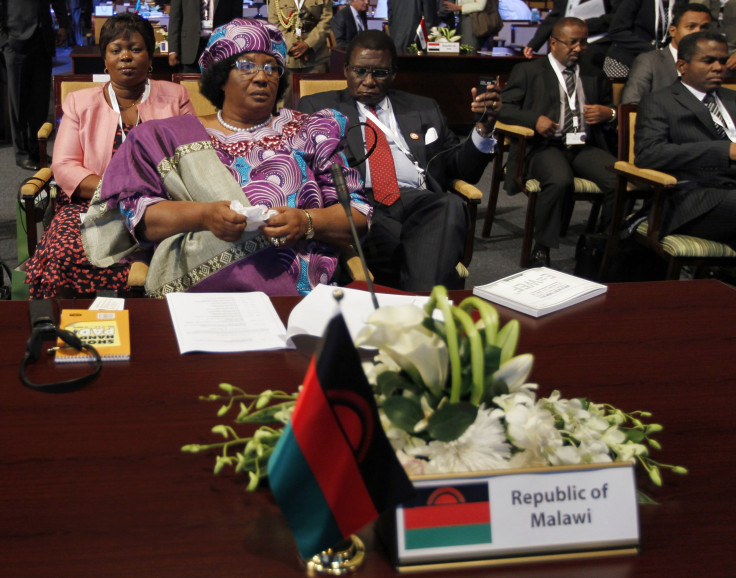Cashgate: Malawi Faces A Ticking Time Bomb As International Aid Dries Up Over Pervasive Corruption

Time is running out for the tiny East African country of Malawi after a slew of major foreign aid donors suspended funding due to a far-reaching corruption scandal affecting the highest levels of government.
The United Kingdom, Norway and the European Union have already suspended financial aid programs amounting to more than $150 million a year, leaving officials of the poverty-stricken country scrambling to improve transparency in order to win back donor confidence. Malawi depends on international aid for about 40 percent of its national budget.
President Joyce Banda, who came to office in April 2012, was initially lauded for initiatives to improve the national economy and clamp down on corruption. But recent scandals -- involving mysterious disappearances of government payouts and discoveries of stashes of currency in the possession of some top-ranking officials -- have sullied her administration’s credibility, and tens of millions of dollars have gone missing during her tenure. The criticism grew especially dangerous in September, when Budget Director Paul Mphwiyo -- tasked with reforming the country's financial infrastructure to eliminate loopholes exploited by corrupt officials -- was shot in the face three times. He is still recovering, and Justice Minister Ralph Kasambara has been arrested in connection with the crime.
Sarah Sanyahumbi, who heads the Malawi branch of Britain's Department for International Development, also said an ongoing scandal -- dubbed "Cashgate" -- has shown "serious weaknesses in the government's financial systems," according to the Telegraph. “This is not business as usual. As far as we are concerned, the line has been crossed, so once the line has been crossed you cannot go back to what you had before."
The U.K. is Malawi's largest aid donor, but has already cut off budget assistance to the country on several occasions, including in 2011 during a period of strained diplomatic relations after British High Commissioner Fergus Cochrane-Dyet called then-Malawian president Bingu wa Mutharika "ever more autocratic" in a leaked cable.
Mutharika died in office in April 2012, and the two countries restored full diplomatic relations in September of that year, after Banda had taken office.
Despite rapid economic growth -- the International Monetary Fund predicts Malawian GDP will expand by 5.5 percent this year -- most of the population ekes out a living on subsistence agriculture, and 74 percent lives on less than $1.25 a day, according to the latest data from UNICEF. Since taking office, Banda has pursued a number of well-received economic initiatives, including devaluing the national currency in line with advice from analysts at the IMF. But the resulting inflation, compounded by a drought that cut earnings generated by the tobacco industry, the country's most important export, has garnered plenty of criticism from the general population.
Though she has not yet been directly implicated in the Cashgate scandal, critics accuse Banda of responding too slowly. But the president argues that this is a problem with deep roots. "[The corruption] has been going on for the last 15 years and this is a president that has decided that it has to stop," she said to Financial Times. "I dissolved the cabinet and sacked ministers, some of them had been arrested, we have arrested 68 people, we have frozen 33 accounts."
© Copyright IBTimes 2024. All rights reserved.












